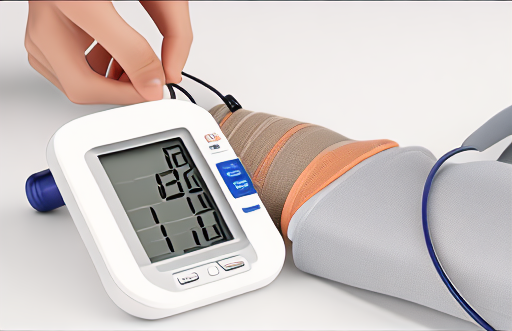High blood pressure, or hypertension, can result from several underlying factors, one of which is dehydration. When the body is dehydrated, it shuts down smaller capillary networks to conserve blood volume, which increases pressure within the vascular system. Adequate hydration is vital for maintaining stable blood pressure levels. Barbara O’Neal emphasizes drinking at least eight glasses of water daily to ensure proper hydration and prevent fluctuations in blood pressure caused by thickened blood or vasopressin release.

The Role of Minerals
Mineral imbalances also play a significant role in hypertension. Essential minerals like magnesium, potassium, and calcium are crucial for heart health and vascular function. Magnesium aids in producing nitric oxide, which relaxes blood vessels, while potassium supports muscle and cardiac function by balancing sodium levels. Foods rich in these minerals, such as dark green leafy vegetables, potatoes, yams, avocados, and legumes, should be a regular part of the diet.
Calcium, often associated with bone health, also regulates blood pressure by aiding vascular relaxation. However, without adequate vitamin D, calcium absorption is hindered. Spending time in the sun to boost vitamin D levels can improve the uptake of calcium and other minerals, supporting overall cardiovascular health.
Salt and Its Impact on Blood Pressure
Contrary to popular belief, not all salts are harmful. Processed table salt, which contains only sodium and chloride, can contribute to hypertension due to its lack of essential minerals. Additionally, it often contains harmful additives and bleaching agents. Barbara O’Neal advocates for the use of natural salts like Celtic sea salt or Himalayan salt. These salts contain up to 82 trace minerals, including multiple forms of magnesium, which support cellular hydration and electrolyte balance. Sodium from natural salts, balanced with potassium, helps regulate blood pressure and prevents harmful sodium retention.
Diet and Lifestyle Factors
A diet lacking in healthy fats and rich in refined carbohydrates can exacerbate high blood pressure. Low-fat diets often lead to increased hunger, causing people to overconsume carbohydrates. This puts stress on the pancreas, leading to insulin resistance and poor glucose metabolism, which are linked to hypertension. Replacing refined carbohydrates with whole foods and including healthy fats can help regulate insulin and stabilize blood pressure.
The Importance of Exercise
Regular exercise, particularly high-intensity interval training (HIIT), can significantly improve blood circulation, strengthen the heart, and lower blood pressure. For those unable to engage in HIIT, moderate activities like walking or using a rebounder can also be beneficial.
Natural Remedies
Barbara O’Neal highlights the benefits of Hawthorn berries and cayenne pepper in managing blood pressure. Hawthorn strengthens the heart, helping to normalize blood pressure whether it’s too high or too low. Cayenne pepper dilates blood vessels and reduces hypertension through its active component, capsaicin. Adding these natural remedies to your routine, alongside a healthy diet and lifestyle, can support long-term cardiovascular health.

Conclusion
High blood pressure arises from a combination of factors, including dehydration, mineral imbalances, vitamin D deficiency, excessive table salt, and poor dietary choices. Addressing these issues through proper hydration, a mineral-rich diet, natural salts, and regular exercise can help maintain healthy blood pressure levels. Barbara O’Neal’s approach emphasizes natural remedies and lifestyle adjustments, offering a holistic path to cardiovascular health.
By incorporating these changes, such as using Celtic sea salt, consuming magnesium-rich foods, and spending time in the sun, you can manage your blood pressure effectively and reduce the risk of associated health complications.
This version organizes the content into clear sections, making it easier to follow and more professional
